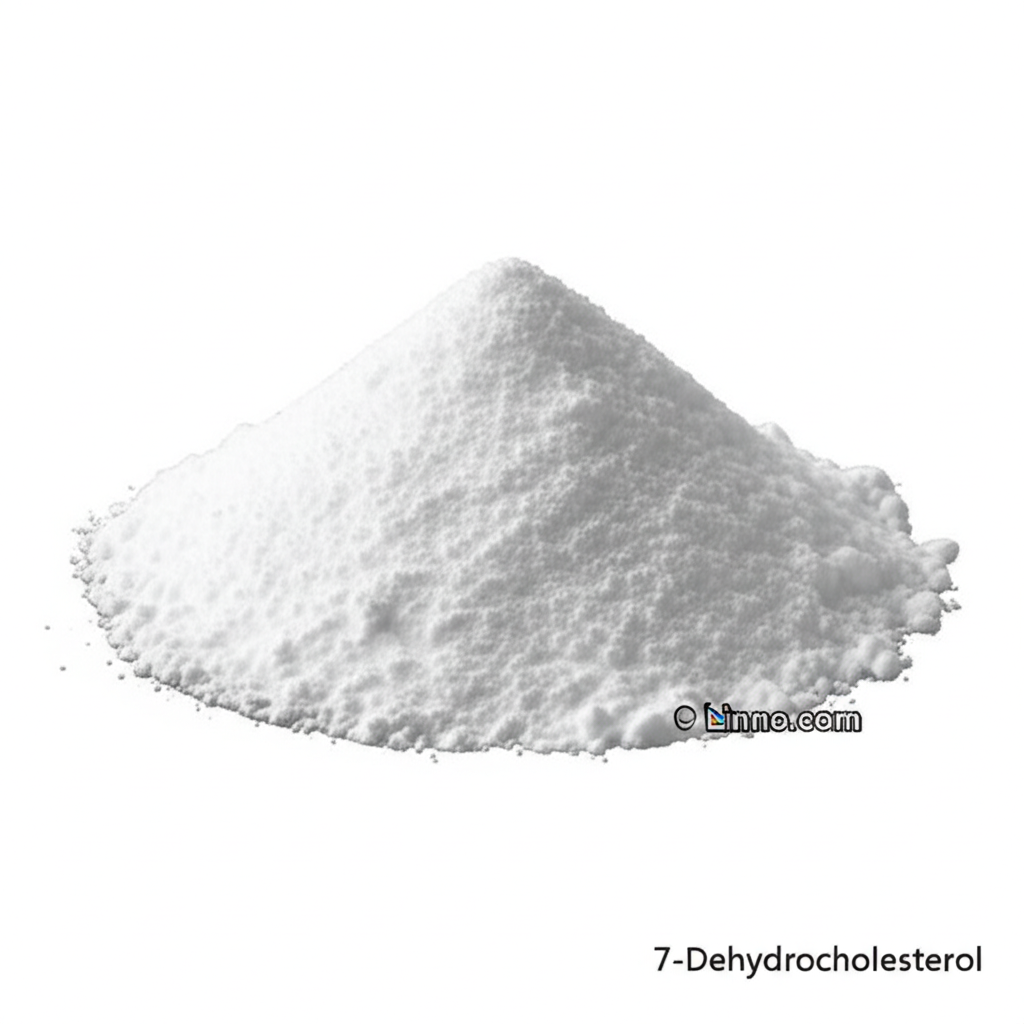7-Dehydrocholesterol: The Crucial Link Between Cholesterol and Vitamin D
Discover the vital role of 7-Dehydrocholesterol in your body's health and wellness journey.
Get a Quote & SampleProduct Core Value

7-Dehydrocholesterol
7-Dehydrocholesterol (7-DHC) is a fundamental compound in human and animal physiology, acting as a direct precursor to cholesterol and a vital intermediate in the biosynthesis of vitamin D3. Its conversion in the skin upon exposure to UVB radiation is a primary mechanism for naturally producing this essential vitamin, crucial for calcium and phosphate homeostasis, bone health, and immune system function. Understanding the role of 7-DHC is key to comprehending vitamin D synthesis pathways and its impact on overall well-being.
- Cholesterol Biosynthesis Intermediate: Explore how 7-DHC plays a critical role in the complex pathways that lead to cholesterol production within the body.
- Provitamin D3 Skin Conversion: Learn about the photochemical transformation of 7-DHC into previtamin D3 and subsequently vitamin D3 when skin is exposed to UVB radiation.
- Smith-Lemli-Opitz Syndrome Biomarker: Investigate 7-DHC's significance as a biomarker for Smith-Lemli-Opitz syndrome (SLOS), a genetic disorder affecting cholesterol metabolism.
- Vitamin D Synthesis Pathways: Gain insights into the intricate mechanisms of the skin's natural vitamin D production, where 7-DHC is a central player.
Key Benefits and Applications
Enhanced Vitamin D Production
By facilitating the skin's natural vitamin D production through UVB exposure, 7-DHC supports robust bone health and immune system function.
Cholesterol Metabolism Insight
Studying 7-DHC provides crucial insights into cholesterol metabolism, aiding research into conditions like Smith-Lemli-Opitz syndrome.
Research and Development Tool
As a high-purity chemical, 7-DHC is invaluable for scientific research, helping scientists unravel complex biochemical processes and develop new diagnostic tools.
Key Applications
Vitamin D3 Supplement Manufacturing
Commercial use of 7-DHC is essential in producing vitamin D3 supplements, vital for treating vitamin D deficiency and related health issues.
Food Industry Fortification
Incorporating vitamin D3 derived from 7-DHC into foods and beverages enhances their nutritional value, supporting public health initiatives.
Biomedical Research
Researchers utilize 7-DHC to study cholesterol metabolism, vitamin D synthesis pathways, and the genetic disorder Smith-Lemli-Opitz syndrome (SLOS).
Diagnostic Method Development
Advancements in diagnosing conditions like SLOS are driven by research into reliable methods for detecting 7-DHC levels in biological samples.
